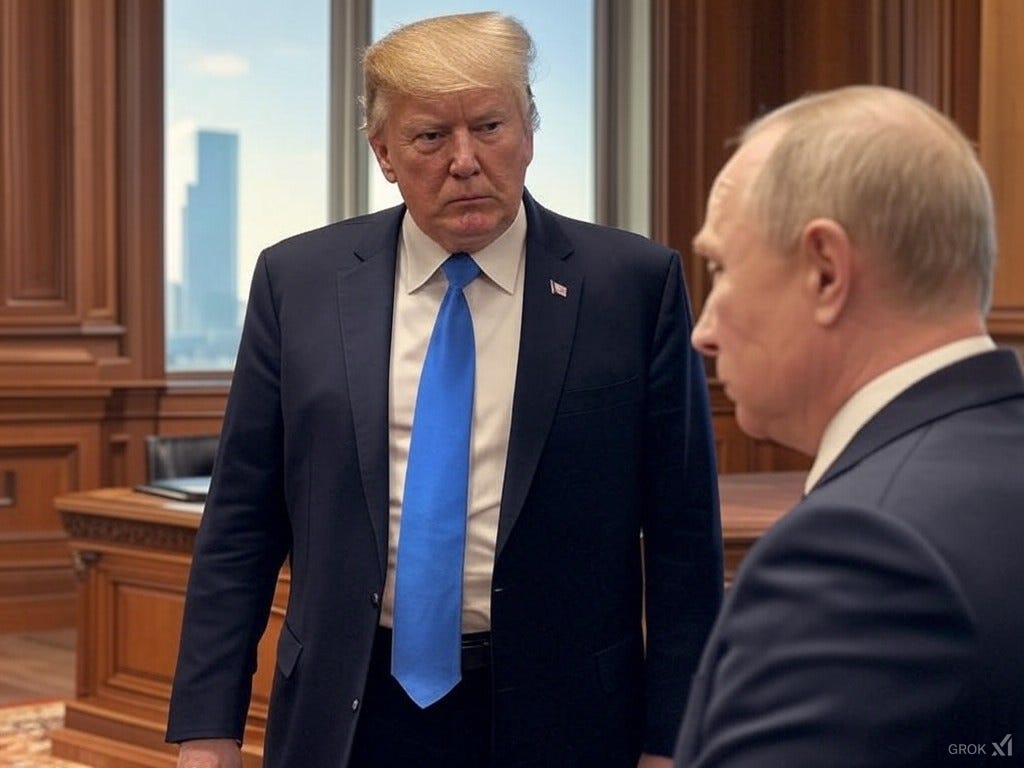Russia Again Demands Ukraine's Capitulation: Analysis of Demands and Political Context
Recent reports on negotiations between Russia and Ukraine shed light on the Kremlin's goals, which have remained unchanged for decades. The key points outlined in Bloomberg and confirmed by other sources highlight Russia's hardline position aimed at fully weakening Ukraine as a sovereign state. Let’s analyze the main aspects of these demands and their context.
Russia's Key Demands:
Disarmament of Ukraine:
The Kremlin demands a significant reduction in Ukraine's armed forces, aiming to transform them into a limited structure capable of performing only police functions. This proposal aligns with the rhetoric previously expressed by figures like oligarch Malofeev, who stated that "Ukraine should have a castrated army."
At the same time, Russia insists that weapons provided to Ukraine must "not be used against Russia." The obvious question arises: who else would these weapons be used against? This clause is merely another tool to strip Ukraine of its ability to defend itself.
Neutral Status for Ukraine:
Russia demands that Ukraine officially enshrine neutrality in its Constitution and sever all ties with NATO. Amid the ongoing war, where Russian aggression has clearly demonstrated the need for international support, this demand is both absurd and strategically impossible for Kyiv.
Negotiations on Territories:
Russia claims to be ready to discuss territorial exchanges. For example, there is talk of swapping border territories. However, such "proposals" only confirm the Kremlin's long-term goal: securing the occupation of strategically important Ukrainian regions.
Formal Renunciation of Territorial Claims?
Despite claims that "territory is not the issue," Russian leaders continue to invoke the fate of "Russian people," which serves as a veiled justification for further expansion. Statements about "the fate of people" appear hypocritical, given the actual conditions faced by Russian citizens themselves.
Russia's Real Goals: Control and Weakening of Ukraine
Demands for "neutrality" and "disarmament" are aimed at creating conditions for renewed aggression. Historical context and Kremlin rhetoric clearly show that Russia does not recognize Ukraine's right to independence. In fact, Putin's demands repeat the ultimatum that preceded the full-scale invasion in 2022.
The strategic goal of Moscow is to turn Ukraine into a vassal state, incapable of resistance. Without a strong military and international support, Ukraine would remain defenseless against a new wave of aggression.
Why This Is Unacceptable:
Reduction of the Armed Forces:
This is tantamount to capitulation. Ukraine, which has been defending its territorial integrity for two years of active war, cannot accept such concessions. Any Ukrainian leader who agrees to this would instantly lose the trust of the people and expose the country to new threats.
"Neutrality":
In the context of years of Russian aggression, as well as the annexation of Crimea and the occupation of Donbas, abandoning Western support contradicts Ukraine's national interests. It would deprive the country not only of protection but also of opportunities for recovery.
Kremlin's Hollow Promises:
History shows that Russia does not adhere to agreements when they conflict with its strategic goals. Any deals with the Kremlin, especially under pressure, risk being violated.
Political Context: Western Signals and Prospects
Amid these developments, an important question arises: what is the West's position? Reports suggest that the administration of Donald Trump is beginning to realize that negotiations with Russia are not a path to immediate peace. Concessions to the Kremlin will only embolden aggression and lead to further conflict escalation. It is crucial for the West to continue supporting Ukraine, including supplying weapons and providing economic aid.
Conclusions:
Negotiations with the Kremlin are possible only on the battlefield. Until Ukraine achieves success on the front lines, any talks risk becoming a tool for advancing Russian interests.
The West must remain consistent. Reducing aid to Ukraine would result in catastrophic consequences for both the country and global security.
Ukraine cannot capitulate. Any demands for disarmament, neutrality, or territorial concessions must be rejected as incompatible with national interests and security.
Russia continues to demonstrate that its ultimate goal is control over Ukraine, while any claims about "the fate of people" serve merely as a pretext for further aggression. The lesson the West must learn is simple: the aggressor can only be stopped with determination and strength.



